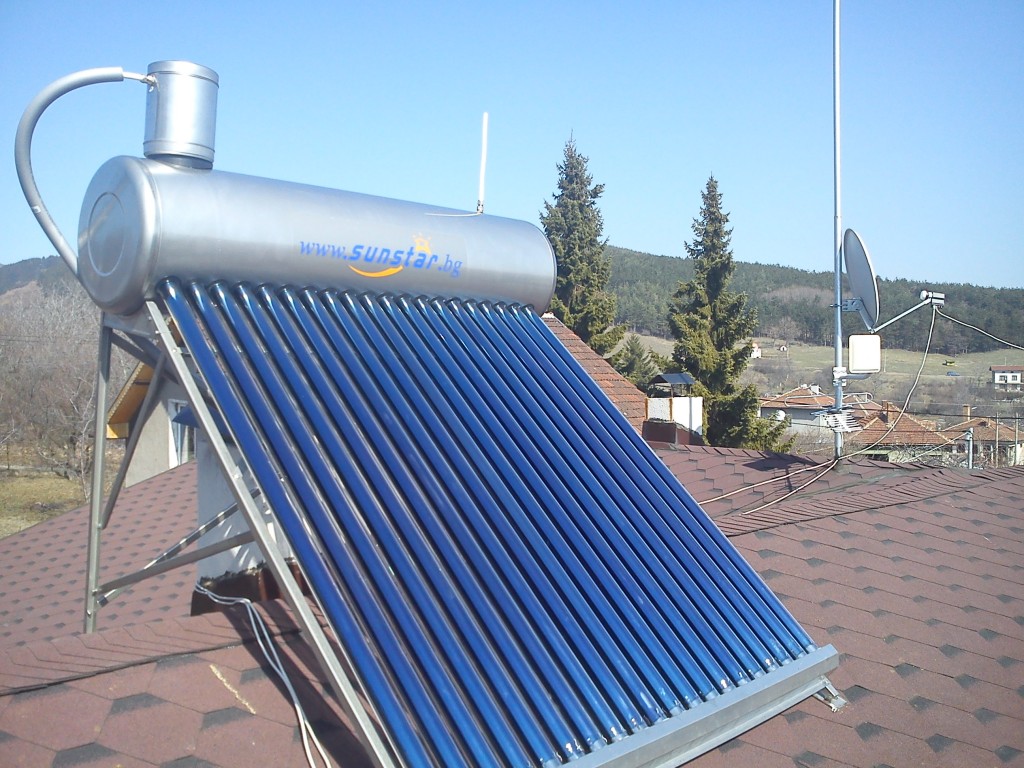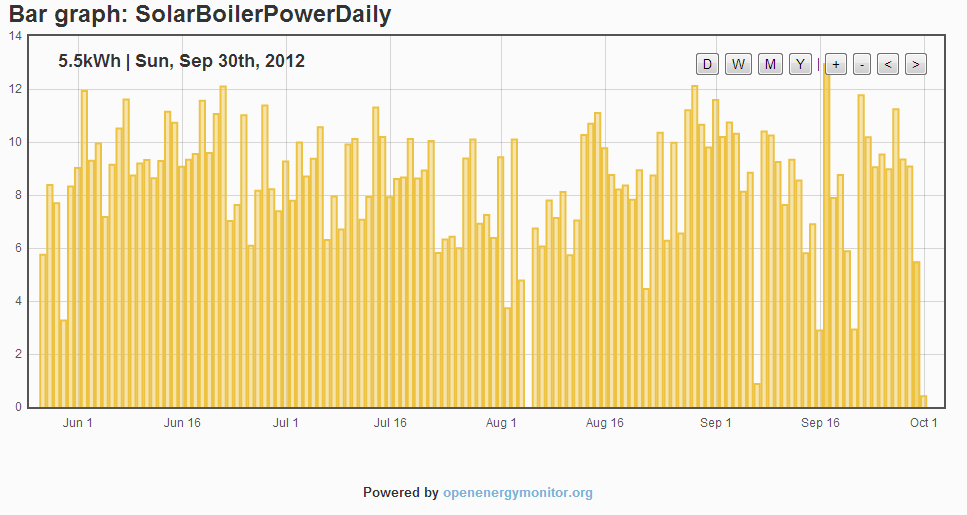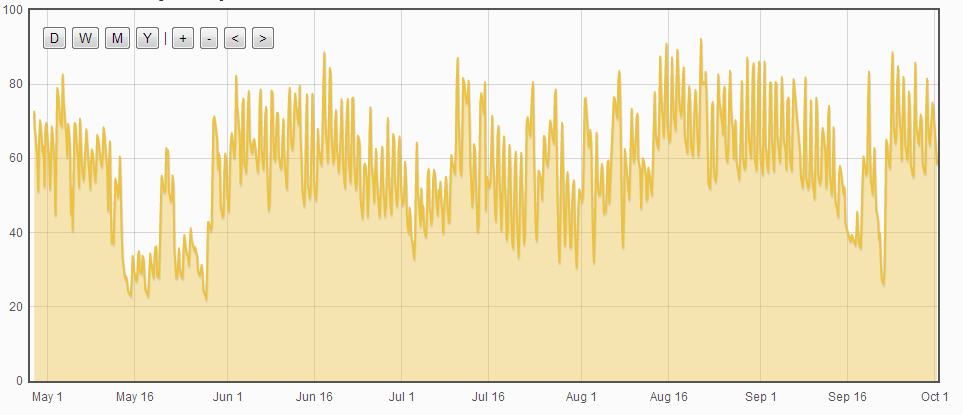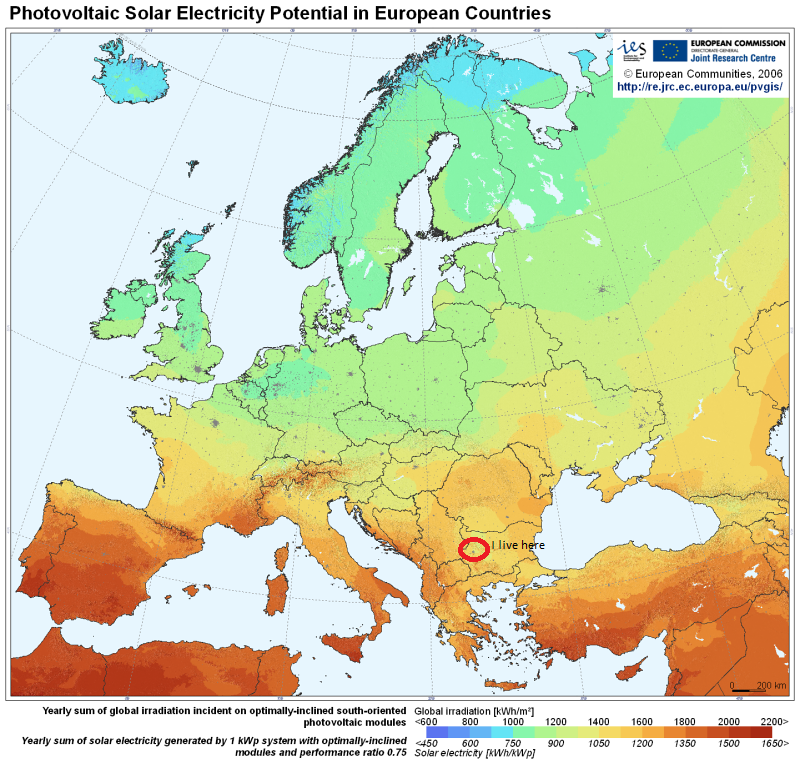Earlier this year I purchased a 220l non-pressurized evacuated tube solar heater and installed it myself on my rooftop. It is a relatively cheap (~440 Euro) solution for domestic hot water. I chose the non-pressurized type because of its simplicity and relative safety in case of overheating. Also, it does not require additional pumps, cold water is filled from the float on top and hot water flows to my house’s pluming system by its weight.
I installed the system end of February 2012, but started real monitoring later. I created a small emoncms processor to measure the power generated, based on the increase in temperature for the fixed water volume. That processor is now merged into emoncms, so anyone can use it. So I have been collecting the data since May 27th 2012 and here is how it looks:
So overall for the 127days that I have statistics, my solar system has generated me effective 1080kWh of hot water, which at the electricity prices here would be around 1/3 of the price of the solar heater. Note that I only started keeping track at end of May, I have it installed since end of February, but the yield was much less then. So overall it is quite a “green” solution, with much less loss involved compared to PV and a fraction of the price and complexity.
Hot water temperatures average 58 degrees C for the period May-Oct t 2012, topping 93 degrees
Edit: I am adding a solar irradiation map of Europe with circled area where I live, so you can compare what you can expect. Map is courtesy of PVGIS © European Communities, 2001-2007




Martin,
Excellent work. I have a 20 tube solar water heater for which I made a little Arduino clone temperature and flow monitor for.
Unfortunately it is 25m from the house, and the pipes hold a lot of cold water.
I like the type with the tank on top like yours – but these are not recommended for the UK climate.
Next summer, I hope to have it working properly.
Ken
Thanks Ken,
Mine has heating element in it, it is optional to use of course and subject to intelligent control, including freeze protection. The climate in the UK should be milder than here in the winter
The good thing about this type of solar systems is that there is practically no loss due to pipes and heat exchanging, but the downside is that there is freezing concern. The seller tried to convince me that with the kind of insulation the system has, chances are zero, but I don’t trust sales people. I will test it out this winter.
Alternatively, you may drain the system for the winter season and limit its usage for March-October (including) where freezing is less likely
Please keep us posted on whether the seller told the truth.
Pingback: Solar water heating in the winter | Martin's corner on the web
Pingback: Martin's corner on the web